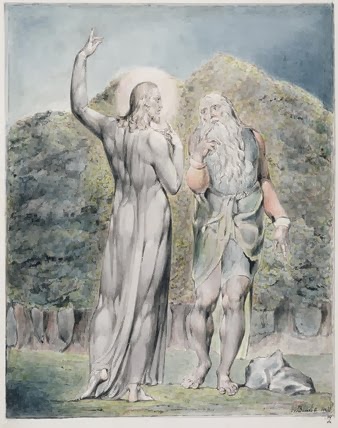1st
February Trinity
Matthew
20:1-16
The
kingdom of the heavens is like a man, the master of his house, who went out
early in the morning to hire workers for his vineyard. Agreeing to pay them one
denarius a day, he sent them out into his vineyard.
At
about 9 o’clock he went out and saw others standing in the marketplace, and he
said to them, “Go also into my vineyard, and I will give you whatever is
right.” So they went.
He
went out again at about noon and at 3 o’clock and did the same. At 5 o’clock he
went out and found others standing there, and he said to them, “Why do you
stand here all day idle?” They said, “Because no one has hired us.” He said,
“You, too, go into the vineyard.”
And
when evening came, the master of the vineyard said to his steward, “Call the
workers and give them their wages, beginning with the last ones hired and going
on to the first.”
Those
who had been hired at 5 o’clock came forward, and each received one denarius.
Therefore, when it was the turn of those who were hired first, they expected to
receive more. However, they too also received one denarius each. They took it,
but they began to grumble against the master of the house. “These men who were
hired last only worked one hour, and you have made them equal to us, who have borne
the burden of the work and the heat of the day.”
However,
he answered one of them, saying, “Friend, I am not being unjust to you. Did you
not agree with me for one denarius? Take what you have earned and go. I wish to
give to the man hired last the same as I give to you. Have I not the right to
do as I wish with what is mine? Or do you give me an evil look because I am
generous? Thus will the last be first and the first will one day be last. “
3rd February Trinity
Matthew 20, 1 – 16
Some flowers, like tulips and crocuses, bloom early. Some
like roses, bloom all season long. The autumn crocus, however, blooms late. One
form of it is the source of the costly spice, saffron.
Human beings appear on fields of earth early, for a long
season, or late. The gospel reading, as scripture often does, warns us about
judging the value of a human being and his or her contribution to the fields of
earthly and heavenly endeavor. The value of their contribution is not fully
visible to human view. The Master of the house and vineyard is the full judge
of the orchestration of human efforts, especially in more hidden spiritual
matters. We each receive our ‘one denarius,’ the means for our daily bread. We
each receive our integrity, our singleness of purpose, from the Master, who
gives us what we need according to his generous mercy.
Those who worked the whole day complained that they had
borne the heat of the day and the burden of the work. Those who had waited out
the day, idle in the marketplace, had also borne the heat of the day, along
with suffering the burden of unemployment. Without them and their fresh efforts
at the end of the day, it is possible that the day’s harvest may not have been
completed.
There is no place in spiritual matters for ambition or
greed. We all receive the just compensation for our time, our work and our
suffering. The God of Mercy sustains us all. For we are all making our
contribution to the universe. Mary Oliver says:
On a summer morning
I sat down
on a hillside
to think about God -
a worthy pastime.
Near me, I saw
a single cricket;
it was moving the grains of the
hillside
this way and that way.
How great was its energy,
how humble its effort.
Let us hope
it will always be like this,
each of us going on
in our inexplicable ways



















